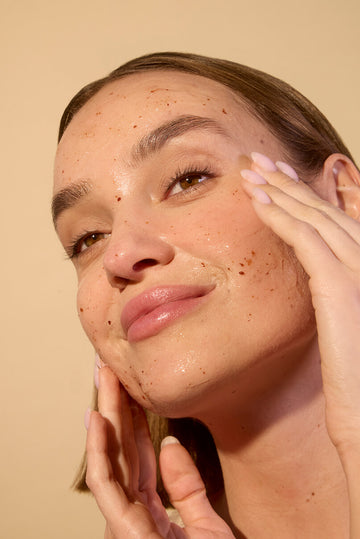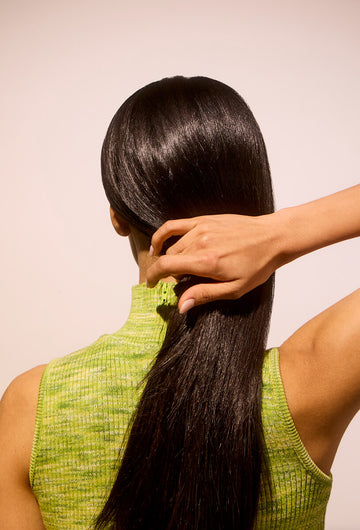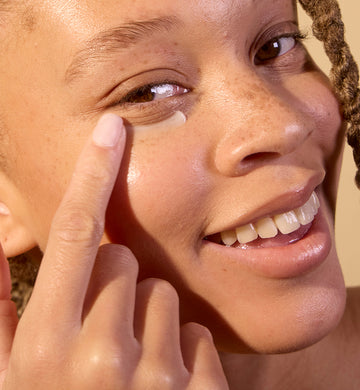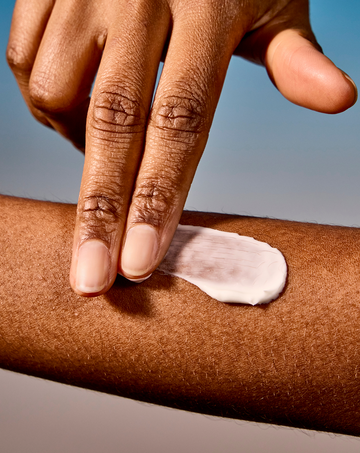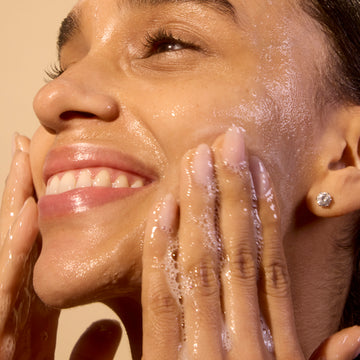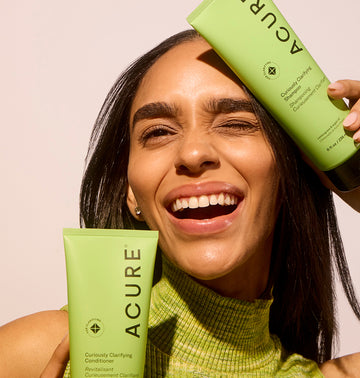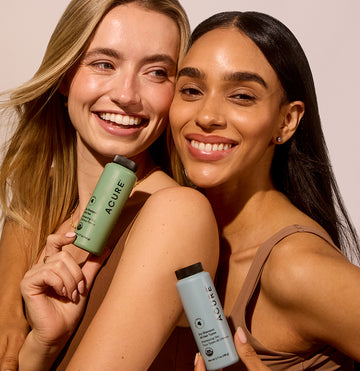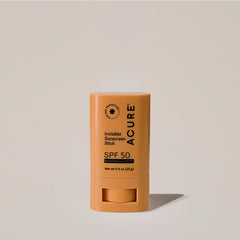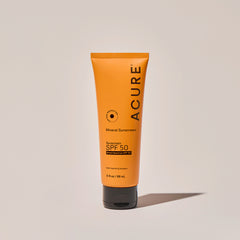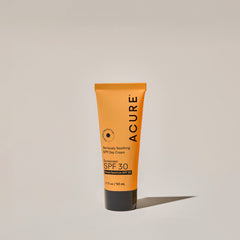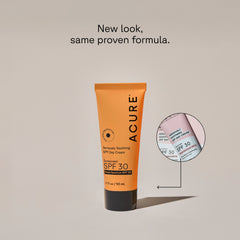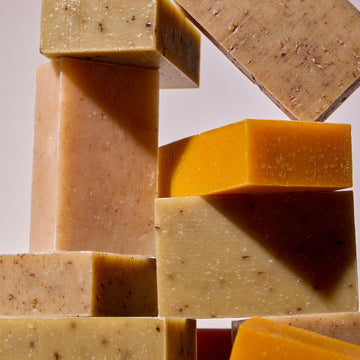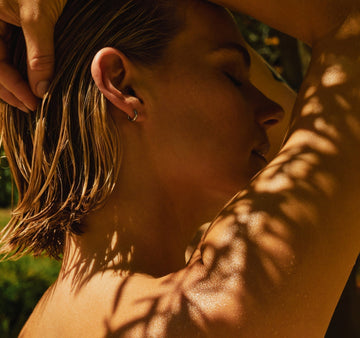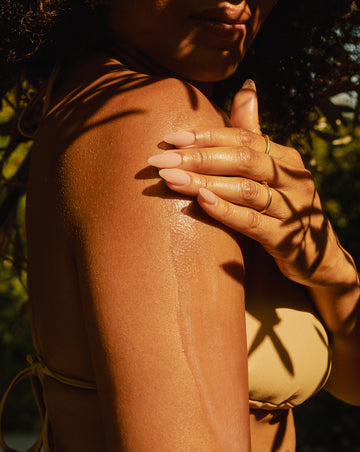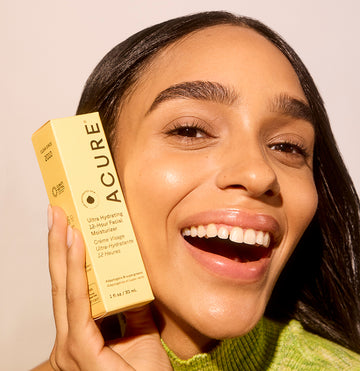
Choosing which sunscreen is right for your skin is largely based on preference. But there are key factors to consider.

Sunscreen, sunblock, SPF, it has many names and many forms, so let us break down all the details of this mighty important skincare step! We will cover the difference between the two topical solutions for sun protection, mineral sunscreen and chemical sunscreen, the pros and cons of each option, and how to choose the best sun protection products for your skincare needs.
Why Sun Protection Is Important
But first, WHY is sun protection important? Protecting your skin from the sun is the most important step in your skincare routine, hard stop. Sun damage is one of the most prevalent causes of skin damage and aging, so protecting your skin from excessive UV rays can quite literally help you look younger!
Protecting your skin can look different for everyone, however it is essential for all no matter the skin type, color, or age. It simply benefits everyone. Applying sunscreen or wearing protective clothing helps shield your skin from harmful UV rays that can cause sun damage, and premature aging. Applying sunscreen as the last step in your skincare routine is an excellent habit to form, effectively limiting the risks associated with prolonged sun exposure or the cumulative effects of sun exposure.Think of applying sunscreen as sealing the deal; not only does it protect your skin, it ensures all your other steps, the products you use before are effective as well, maximizing your benefits.
Next, let's dive into the different types of topical protection, what they are, and how they are different!
What Is Mineral Sunscreen?
Mineral sun protection, sometimes referred to as ‘physical sun protection’ or ‘physical sunscreen’ blocks UVA and UVB rays by refracting them using minerals like zinc oxide, or titanium oxide. Mineral sunscreens are safe and effective for all skin types, and ideal for those with sensitive skin, including rosacea. Typically, these can be very white in color and leave a white cast on the skin once it is applied, but this depends on the formula. Our NEW Mineral Sunscreen SPF 50 is a lightweight whipped texture that protects and hydrates the skin using 22% zinc oxide and squalane, and does not leave a white cast.
Shop SPFs that do more than just protect.
What Is Chemical Sunscreen?
Chemical sunscreens use man- made chemicals like homosalate and octisalate that absorb the UV rays before they penetrate the skin. Formulas are typically more sheer or completely clear in application and lightweight. Our NEW Invisible Sunscreen Stick SPF 50 provides broad spectrum protection using a combination of Avobenzone 3.0%, homosalate 15.0%, Octisalate 5.0% with vitamin E for sun protection, invisible coverage with a lightweight glow that is also super travel friendly.
Shop SPFs that do more than just protect.
Mineral vs. Chemical Sunscreen
Let’s lay out some of the pros and cons of each to help determine which you might want to use for yourself.

Mineral
Pros:
• Immediate protection once applied
• Great options for sensitive skin types
• Naturally derived minerals and environmentally conscious
Cons:
• Can leave a white cast depending on formula
• May feel heavier on the skin depending on formula
• Can be less water resistant

Chemical
Pros:
• More water resistant
• Sheer or invisible application
• Lightweight feeling
Cons:
• Protection is not immediate. Can take up to 15 minutes to absorb into the skin
• Can be irritating to sensitive skin
• Concerns around reef safety compared to mineral sunscreens
Choosing The Right Sunscreen Option For Your Skin Type
Which sunscreen is best for you and your skin. Firstly, there is a perfect sunscreen out there for everyone, whether you are a mineral loyalist or love a chemical invisible glow, you’ve got options. Over the years technology and formulas have become more and more advanced, with suncare being incorporated in many skincare products or makeup. But an important part when choosing the right SPF, is the type and amount of coverage you need based on your activity.
Here are a few important questions to ask yourself:
• How long will you be outdoors or in direct sunlight?
• Going in the water?
• Will you be sweating?
• Need something you can easily apply to certain areas on the go?
The bright side is that there is an SPF for every occasion! Here are some options and their benefits.
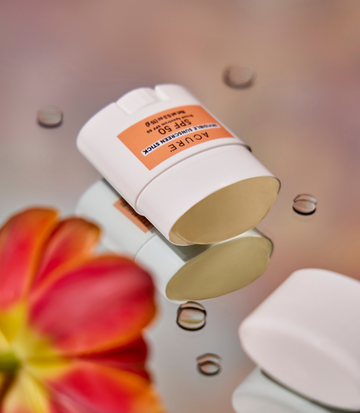
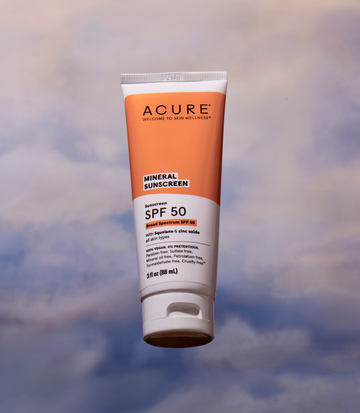
Invisible Sunscreen Stick SPF 50
Best for breakout prone skin
• Boosts glow
• No white cast
• Doesn't clog pores
Mineral Sunscreen SPF 50
Best for full body coverage
• Whipped texture
• Lightweight application
• Deeply moisturizes
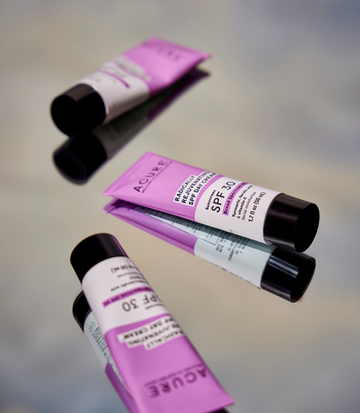
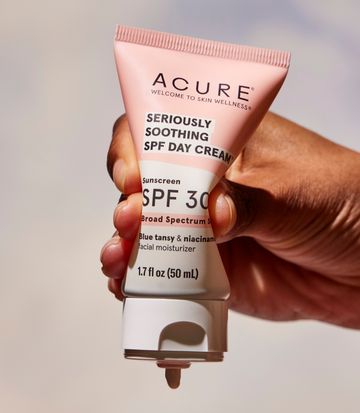
Radically Rejuvenating Day Cream SPF 30
Best for Hyperpigmentation
• Made with Vitamin C
• Brightens skin
• Evens the look of skin tone
Seriously Soothing Day Cream SPF 30
Best for Sensitive skin types
• Made with Blue Tansy and Niacinamide
• Hydrates and soothes skin
• Helps minimize appearance of pores
All information, content, and material of this blog is for informational purposes only. This blog provides general information and discussions about health and beauty related subjects. The information and other content provided in this blog or in any linked materials are not intended and should not be considered, or used as a substitute for, consultation, medical advice, diagnosis and/or treatment of a qualified physician or healthcare provider.


